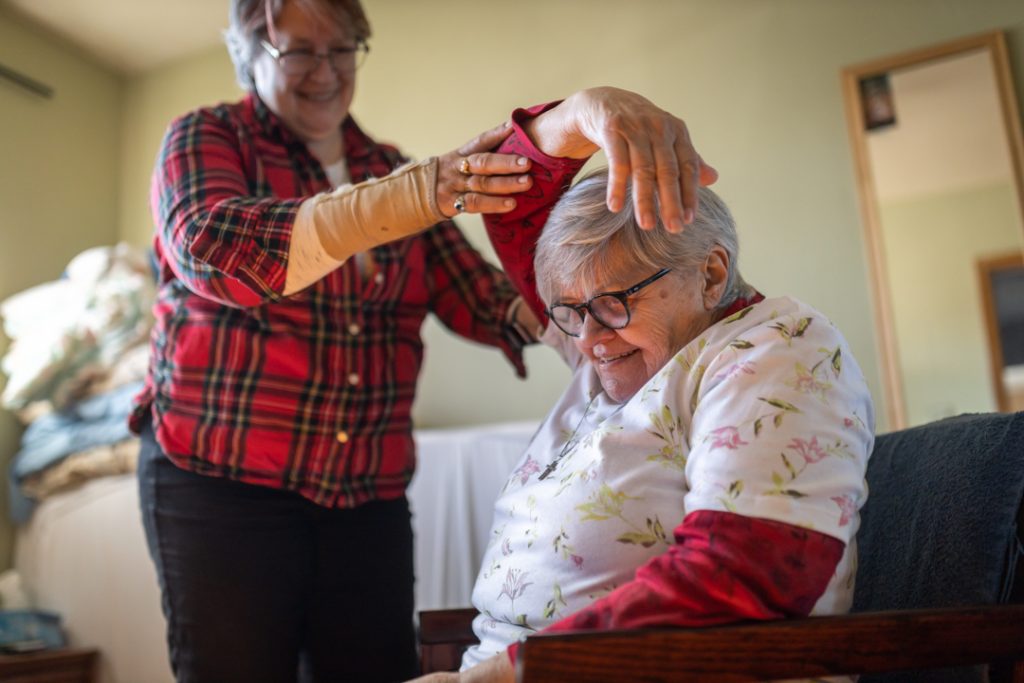
Virtual research study seeks to help older adults maintain strength and independence while isolating at home during COVID-19
HAMILTON, ON – The GERAS Centre for Aging Research is conducting a virtual research study to examine the best ways to help older adults maintain strength and independence while isolating at home during COVID-19. GERAS is part of Hamilton Health Sciences (HHS) and is affiliated with McMaster University.
“We know that some seniors were housebound and struggled to get out before the pandemic,” says Dr. Alexandra Papaioannou, GERAS’ executive director. “COVID just made it much, much worse.”
The study is taking place virtually through phone visits and video conferencing. It involves older adults ages 65 plus who have lost energy or strength during the pandemic. This could include a slower walking pace or difficulty climbing stairs. Participation is free and covers 12 weeks. Such studies are leading to better outcomes for patients and would not be possible without volunteers.
Like many older adults, 83-year-old Eunice Taylor struggles to stay active and maintain her mobility. When Eunice learned about a virtual research study looking into the best ways to help older adults maintain strength and independence while isolating at home during COVID-19, she was quick to enroll.
“I feel better by taking part in the study,” says Eunice, whose daughter Karen Scott helps her follow the online programming. “It’s helping me get better on my feet.”
As older adults start slowing down, losing muscle strength and feeling more fatigued, they are more susceptible to other health issues.
“For example, if a person gets a urinary tract infection when they’re middle aged, they don’t end up in hospital,” says Papaioannou. “But you do when you’re frail because you just don’t have the reserves. It’s like having no gas in the tank of your car. An older adult could start a new drug, not be able to tolerate it and end up becoming confused or having a fall.”
Study participants are being recruited until the end of May. Anyone interested can call 905-521-2100 ext. 12232 or email research assistant Karen Thompson at thompsokar@hhsc.ca or junior research coordinator Jessica Belgrave Sookhoo at belgravej@hhsc.ca.
Funding for this study comes from the McMaster COVID-19 Research Fund and the Juravinski Research Institute, in partnership with the HHS and St. Joseph’s Healthcare Hamilton Foundations and McMaster University.
More information, as well as photo and video resources, can be found on the HHS website at https://www.hamiltonhealthsciences.ca/share/medical-hero-eunice/.
– 30 –
For more information, please contact:
Wendy Stewart
Communications & Public Affairs
Hamilton Health Sciences
stewartwen@hhsc.ca
